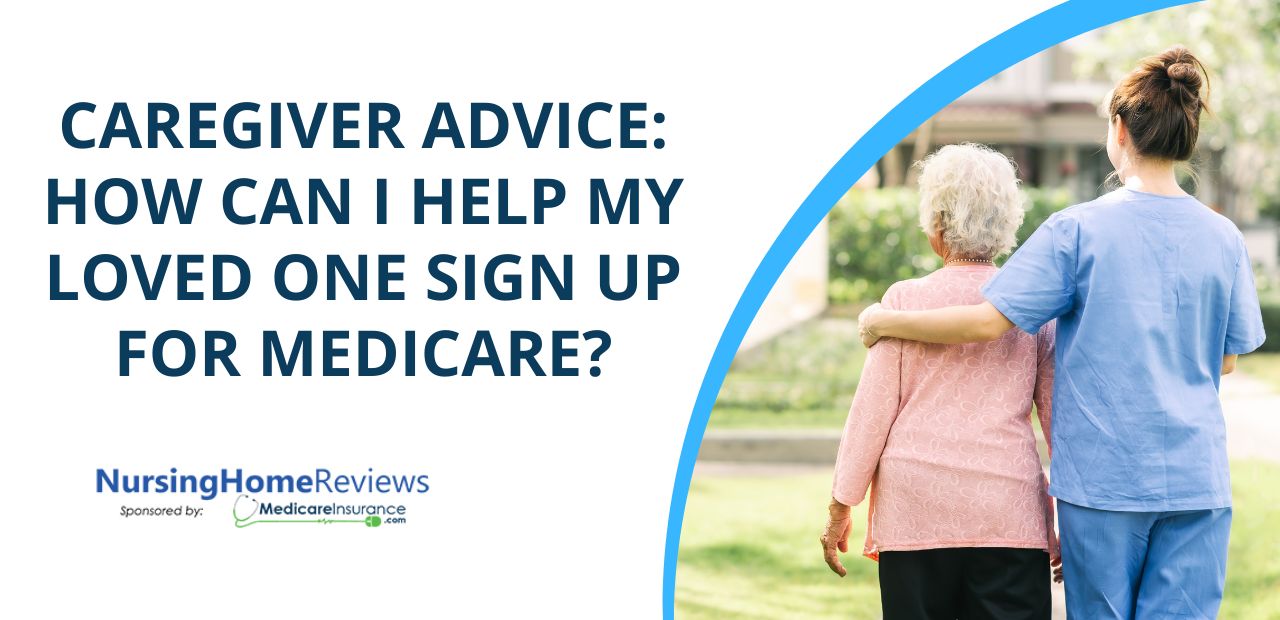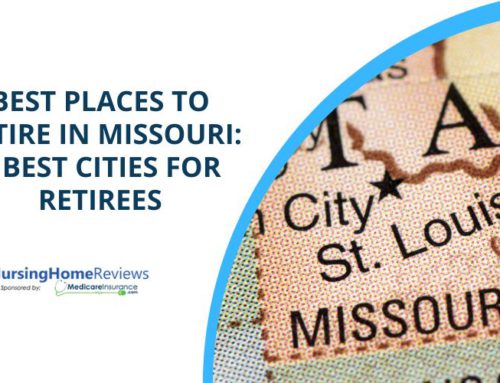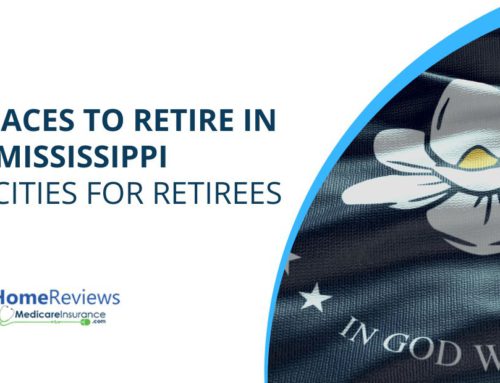
Is It Time for Your Loved Ones to Sign Up for Medicare?
Odds are good that you have loved ones who are either quickly approaching the age of 65, or they’re already there. This means that they’re eligible to receive Medicare benefits.
By now, you probably have a general understanding of what Medicare is. However, you or your loved ones may be unsure of how to sign up for Medicare when the time comes. If this is the case, don’t worry: you and your loved ones are not alone.
Many of the aspects of signing up for Medicare can seem confusing at first. There are enrollment periods to consider, and deciding how to turn in an application for enrollment in Medicare Part A and Medicare Part B can be tough. Not to mention, there’s a lot of research involved in helping your loved ones find a Medicare plan that’s right for them.
There’s some good news, though. The process of helping your loved ones sign up for Medicare can be simplified, and we’re here to help. In this article, we’ll take you through all aspects of enrollment, from initial research to filling out an application for enrollment.
Be Aware of Medicare Enrollment Periods
Have you ever been told that you can help your loved ones sign up for Medicare at any time during the year? This is a common misconception that tends to float around. The truth is this: your loved ones can only sign up for Medicare during specific enrollment periods.
Familiarizing yourself with Medicare enrollment periods should be one of the first steps, if not the first step, you take in the process. This comes before having your loved one jump in to fill out a Medicare Part B application for enrollment, or even researching plans. Let’s take a look at the different Medicare enrollment periods.
The three primary Medicare enrollment periods are as follows:
- Initial Enrollment Period (IEP)
- Annual Enrollment Period (AEP)
- Open Enrollment Period (OEP)
IEP is the first opportunity for your loved ones to enroll in a Medicare plan. It is the longest enrollment period, as it lasts for seven months. An individual IEP:
- Starts three months before one’s 65th birthday
- Runs through an individual’s birthday month
- Ends three months after the individual turns 65
When an IEP begins or ends depends on when your loved one first becomes eligible for Medicare coverage. For example, your loved ones may be eligible to sign up for Medicare prior to the age of 65 as a result of qualifying disability or illness. If you are helping a loved one sign up for Medicare because of disability or illness, be sure to consult CMS resources to find out when their IEP would begin.
If your loved one misses signing up for Medicare during IEP, they’ll have another chance beginning in October. Medicare’s Annual Enrollment Period (AEP) provides an opportunity each year for eligible beneficiaries to sign up for Medicare. AEP takes place each year from October 15 through December 7.
Does your loved one already have a Medicare plan, but they need your help switching them out? You can help them do so during Medicare’s Open Enrollment Period (OEP). This takes place each year as well, from January 1 through March 31.
Let’s say you’ve missed the enrollment periods above as a result of a loved one being ill or relocating. They may still have an opportunity to sign up for Medicare. Certain life events can trigger what is known as a Special Enrollment Period (SEP), giving seniors who missed prior enrollment periods an opportunity to enroll.
Find nursing homes and retirement facilities in your area for your loved ones.
Start your search today.

Research and Compare Medicare Plans With Your Loved Ones
Another common misconception is that Medicare plans are a “one size fits all” type of deal. The truth is that not all Medicare plans are built the same, and can offer very different benefits. This is why it’s imperative that you sit with your loved ones and review all of the Medicare plan options available to them in their area.
Original Medicare is the plan that’s offered by the federal government. It’s designed to provide comprehensive hospital and medical care insurance coverage to seniors, and the coverage rarely changes. Most seniors tend to choose Original Medicare when they initially sign up, only to discover that it may not cover every treatment or service they need. It also will not cover most self-administered prescription medications.
Medicare Advantage, also known as Medicare Part C, is a form of health insurance designed for seniors offered by private health insurance companies. It offers the same hospital and medical coverage as Original Medicare, but some plans offer more. For example, many Medicare Advantage plans offer coverage for dental, hearing, and vision care*.
Medicare Prescription Drug Coverage (Part D) and Medigap supplemental insurance are also offered by private health insurance companies. Medicare Part D covers most prescription medications, and Medigap insurance can help you pay for “gaps” that may appear in your regular coverage. Some examples of these gaps include coinsurance and copays.
As you can see, there are plenty of options out there for your loved ones when it comes to Medicare insurance. This can make choosing a plan seem daunting. When you’re comparing plans with your loved one, it’s important to remember to go over the pros and cons of the plans that interest them. This makes the search process much easier, and helps your loved ones sign up for a Medicare plan that benefits them the most.
*The coverage and benefits offered by Medicare Advantage plans greatly depends on two big factors: where you live, and the company selling your Medicare insurance plan.
Filling Out and Filing Medicare Applications
So, your loved one has chosen a Medicare plan. The next part of the process is to fill out and file their application for Medicare benefits. Where you’ll help them find, fill out, and file their application depends on the type of plan they’ve chosen.
Let’s say your loved one has chosen Original Medicare. Depending on whether or not they choose split or complete coverage, they’ve got three application choices:
- Application for enrollment in Medicare Part A
- Application for enrollment in Medicare Part B
- Application for enrollment in Medicare Parts A and B
The good news is that the application for enrollment in Part B, Part A, or both can be easily found and filed with the Social Security Administration (SSA). Let’s say your loved one is choosing to fill out a Medicare Part B application for enrollment only. They can do so one of three ways:
- By applying online via the SSA website
- By calling their local SSA office
- By visiting their local SSA office to fill out an application for enrollment in person
To fill out an application for enrollment for a Medicare Advantage, Medicare Prescription Drug, or Medigap plan, they’ll need to contact the insurance company carrying the Medicare plan they’re interested in.
As their caregiver, you’ll play a vital role in the process by helping them fill out needed information, or by asking questions or voicing concerns that may arise regarding the plan. This is especially important if your loved one feels that they cannot do this themselves.
*The coverage and benefits offered by Medicare Advantage plans greatly depends on two big factors: where you live, and the company selling your Medicare insurance plan.

As a Caregiver, You’re An Empowering Force
As your loved ones venture into their golden years, your presence and willingness to help them handle tasks, like signing up for Medicare, becomes more valuable than ever. No matter your loved one’s level of independence, simply letting them know you’re available to lend a helping hand makes a huge difference.
Signing up for Medicare is an important milestone in the lives of seniors. As a caregiver, it’s your duty to make sure they enroll in a Medicare plan that offers everything they need to live a happy, healthy life. You achieve this by playing a role, large or small, in helping them sign up for a Medicare plan.
Help your loved ones find nursing homes near you that offer expert-level care.
Check ratings and violations.





